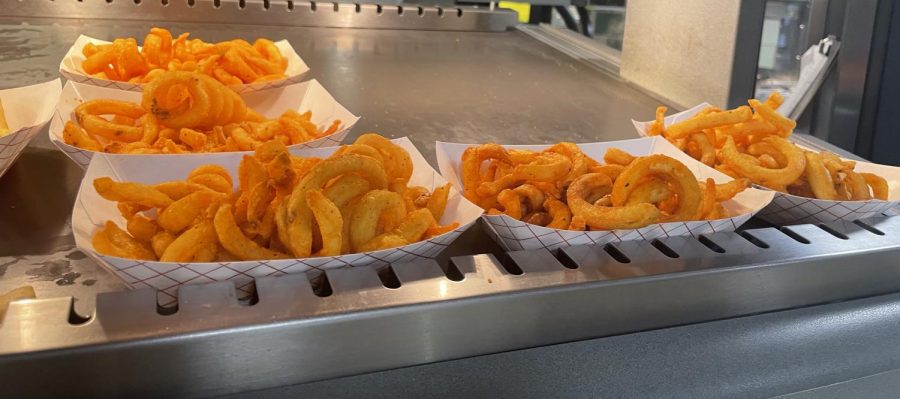Unpacking unpurchased cafeteria food
Quest Food Management Services, the food service company that partners with Glenbrook High School District #225, has procedures in place designed to minimize food waste in the cafeteria. Quest tracks student trends in the cafeteria to manage the inventory of items sold, reuses certain items whenever possible and utilizes made-to-order food stations.
“There’s very little waste, next to nothing,” said Tim Almy, general manager of Quest at District #225. “The only items that are carried over might be a grab-and-go item, which would be a deli sandwich or a salad. Those have a shelf life of one or two days.”
According to Lauren Bonner, associate principal for administrative services, when food reaches the point at which it has to be thrown out, it is because of health and safety regulations.
“After ‘X’ number of hours or after the temperature changes by [a significant amount], the food has to be thrown out because it could make somebody ill,” Bonner said.
Quest reduces waste in the cafeteria by tracking trends of how much of each food item is sold.
“For instance, [Quest looks] at trends, and they track how many chicken sandwiches are purchased in any given day, and how many chicken nuggets are purchased, how many slices of pizza,” said Bonner. “And so what they’re doing is each day, they’re trying to cook that plus a little bit more, but not a lot. So that if a couple more students buy it, or a couple more staff members, then [the cafeteria has] it, but at the end of the day, if the trends are consistent, it means they’re throwing out less.”
Senior Iliana Balaskas worked to start a composting initiative for the cafeteria last year.
“We tried to find a way to start composting in the caf, both with the workers and with the students with the way the old trash bins and all the bins were set up in the caf,” said Balaskas. “It all ended up not really working out because our school was so far from that.”
According to Sara Elnakib, professor in the Department of Family and Community Health Sciences at Rutgers University, schools across the world throw out unpurchased food, an action that can be reduced.
“Food waste has an environmental, social and economic impact, so it makes sense for us to tackle it,” said Elnakib. “Most of the food waste that happens [is] at the consumer level, and schools are a really big [factor] in reducing food waste.”
According to Balaskas, student effort is also important to helping reduce waste in the cafeteria.
“A big thing that students can do is be aware and actively think about what they’re doing with their trash and with their food waste in general,” said Balaskas. “Being actually conscious of what you’re doing with your trash and the options that you have and just doing your part.”


